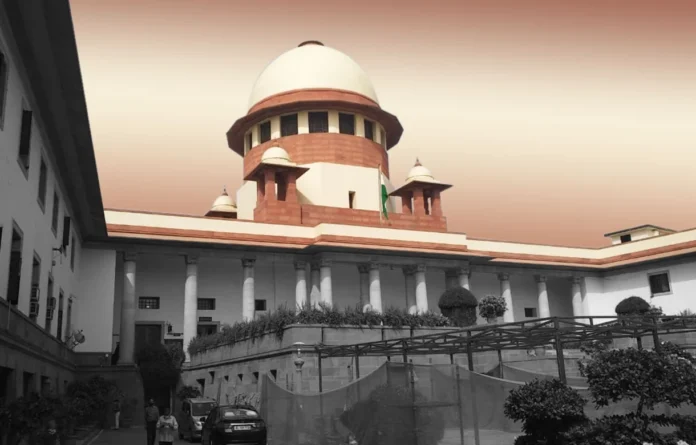The Supreme Court was apprised on Thursday by the Central government that the order of the Delhi Police Commissioner prohibiting public gatherings of five or more that five persons from September 30 to October 5 has been withdrawn.
Appearing for the Union of India, Solicitor General Tushar Mehta informed the Bench of Chief Justice of India DY Chandrachud, Justice JB Pardiwala and Justice Manoj Mishra that the Delhi High Court was also considering a similar petition.
The Apex Court heard the matter today after Senior Advocate Menaka Guruswamy sought an urgent mentioning of a petition challenging the order issued by the Delhi Police on September 30.
Senior Advocate Guruswamy contended that the order, which would remain operative till October 5, would impact the ongoing festive season, especially the functions held on the occasion of Navratri and the Ram Leela performances.
Filed by Sunil, a priest of the Kalkaji temple and Secretary of the Manas Naman Sewa Society, which organises the grand Ramlila fair at the Satpula Ground in Chirag Delhi, the petition contended that the Ram Leela and Dussehra festivities, which were scheduled to commence on October 3, could not take place due to the September 30 order.
It further submitted that several religious gatherings and functions were organised during the nine-day festival of Sharad Navratras, which would begin this year on October 3.
The prohibitory order by Delhi Police would prevent such festivals and religious gatherings, added the plea.
On September 30, Delhi Police Commissioner Sanjay Arora, invoking the powers under Section 163 of the Bharatiya Nagarik Suraksha Sanhita (BNSS), prohibited the districts of New Delhi, North and Central and all police stations having territorial jurisdiction over the borders of Delhi for a period of six days from September 30 to October 5: assembly of five or more unauthorised persons; carrying of fire-arms, banners, placards, lathis, spears, swords, sticks, brickbats etc; and picketing or dharnas in any public area.
The order stated that in view of the proposed Waqf Amendment Bill, the MCD Standing Committee election issue, the DUSU elections and calls made by various organisations for protests, the general atmosphere in Delhi had become ‘sensitive’ from the law and order point of view.
It further cited the impending elections in the States of Jammu & Kashmir and Haryana as reason for issuing of the prohibitory order.


